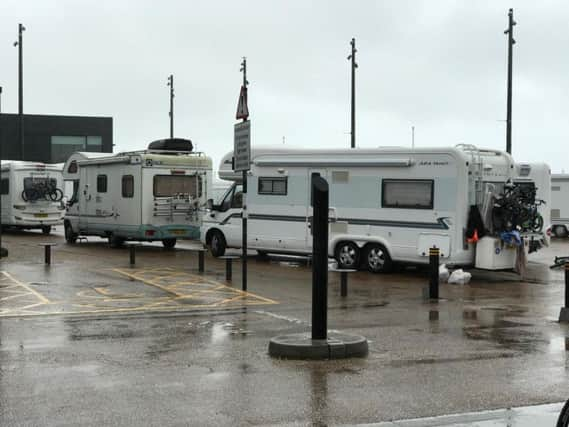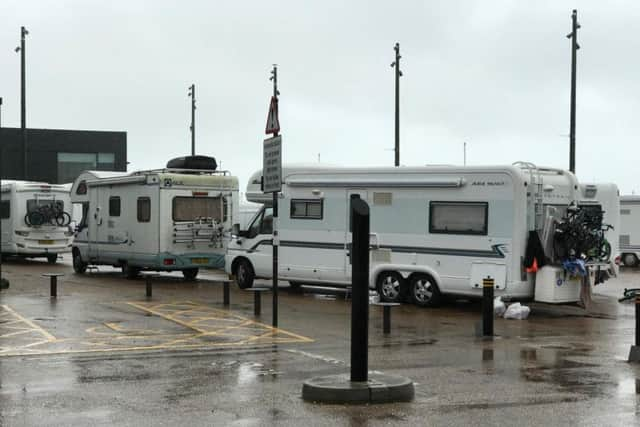Hastings traveller camp - what can the authorities do and what are the travellers' rights?


According to East Sussex County Council, unauthorised encampments are very rare in East Sussex. However if residents do need to report one they must contact their district or borough council.


There are five authorised traveller sites owned by East Sussex County Council. However, none of these fall under the Hastings borough.
Advertisement
Hide AdAdvertisement
Hide AdThey are: Swan Barn Caravan Site, in Hailsham, which has nine pitches; Batts Bridge Caravan Site, in Maresfield which has ten pitches; Polly Arch Caravan Site, in Polegate, which has six pitches; Redlands Lane Caravan Park, in Robertsbridge, which has eight pitches; and Bridie’s Tan Transit Site, in Lewes, which has nine pitches.
Who are Gypsies and travellers?
Gypsies and travellers travel the country as part of a nomadic way of life.
As with any other individual, all gypsies and travellers have rights under the 1998 Human Rights Act.
Romany Gypsies and Irish Travellers are also protected against discrimination on the basis of their ethnic origins under the 2010 Equalities Act.
Advertisement
Hide AdAdvertisement
Hide AdIn 2014, Amnesty International estimated there were 200,000-300,000 Gypsy and Irish Travellers in the UK.
What is an unauthorised encampment?
This is when a group of people with vehicles trespass on land with the plan to reside there without the owner's consent . This is a civil matter not a criminal offence.
What must the council do?
The council will check to see how tidy the site is, how much it is disrupting local residents and businesses, and whether it is obstructing highways or public rights of way.
The council must also check the general health and welfare of the group and the children's education.
Advertisement
Hide AdAdvertisement
Hide AdUsually the council will try to negotiate a leaving date with the travellers rather than having to go down the more costly court route.
However, if this is not possible, the council must follow a set procedure which involves proving ownership of the land, giving details of the illegal encampment, and then serving notices and summonses in order to successfully obtain a court order to evict the travellers from the site.
What can you do if they are on private land?
If they are camped on private land without the landowner's permission it is the landowner's responsibility to prevent it and evict them. This can be done by asking them to leave and by starting court proceedings.
What can the police do?
Police will visit sites reported to them and if there are six or more vehicles, officers can use powers under section 61 of the Criminal Justice and Public Order Act 1994.
They will take action if criminal activity, public disorder or disruption to the local community can be established.